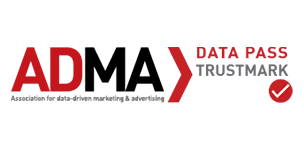Have you ever received an offer that seems too good to be true, perhaps a phone call to help fix your computer or a threat to pay money you do not owe, an alert from your bank or telecommunications provider about a problem with your account or even an invitation to ‘befriend’ or connect online? Scammers know how to press your buttons to get what they want.
The Australian Competition and Consumer Commission (ACCC) recently revealed that scams reported involving identity theft or the loss of personal/banking information have cost Australians at least $16 million this year already.
Four in ten Scamwatch reports in 2019 involve attempts to gain information, or the actual loss of victims’ information. Scamwatch reports that Australians are losing more than $110,000 each month in scams impersonating the National Broadband Network (NBN), with the ACCC adding that scams of this type are up almost 300 percent on last year.
Following on from Scams Awareness Week (12–16 August) and in the lead up to Stay Smart Online Week (7-13 October), the best way to protect yourself is through awareness and education to ensure you don’t fall victim to scammers.
Visit our security page to familiarise yourself with our information and security tips to help keep your credit card and debit card secure, and to bank safely and securely online.
Need help?
If you believe someone has gained access to your personal information, even if the scam appears unrelated to your finances, you should contact your bank immediately. A timely response can be critical in giving you the best chance to stem any loss.
- If you have concerns about your G&C Mutual Bank, account contact us on 1300 364 400.
- You can find out how scams work, how to protect yourself, what to do if you've been scammed or report a scam to the ACCC via the Scamwatch website: www.scamwatch.gov.au.
Some of the ways scammers obtain personal or banking information
Hacking
Occurs when a scammer gains access to your personal information through the use of technology to break into your computer, mobile device or network.
Identity theft
A type of fraud involving the use of someone else’s identity to steal money or gain benefit.
Phishing
Attempts by scammers to trick you into giving out your personal information such as your bank account numbers, passwords and credit card numbers.
Remote access scams
Try to convince you of a computer or internet problem requiring you to download software or provide access to fix the problem, giving scammers direct access to everything on your computer.




